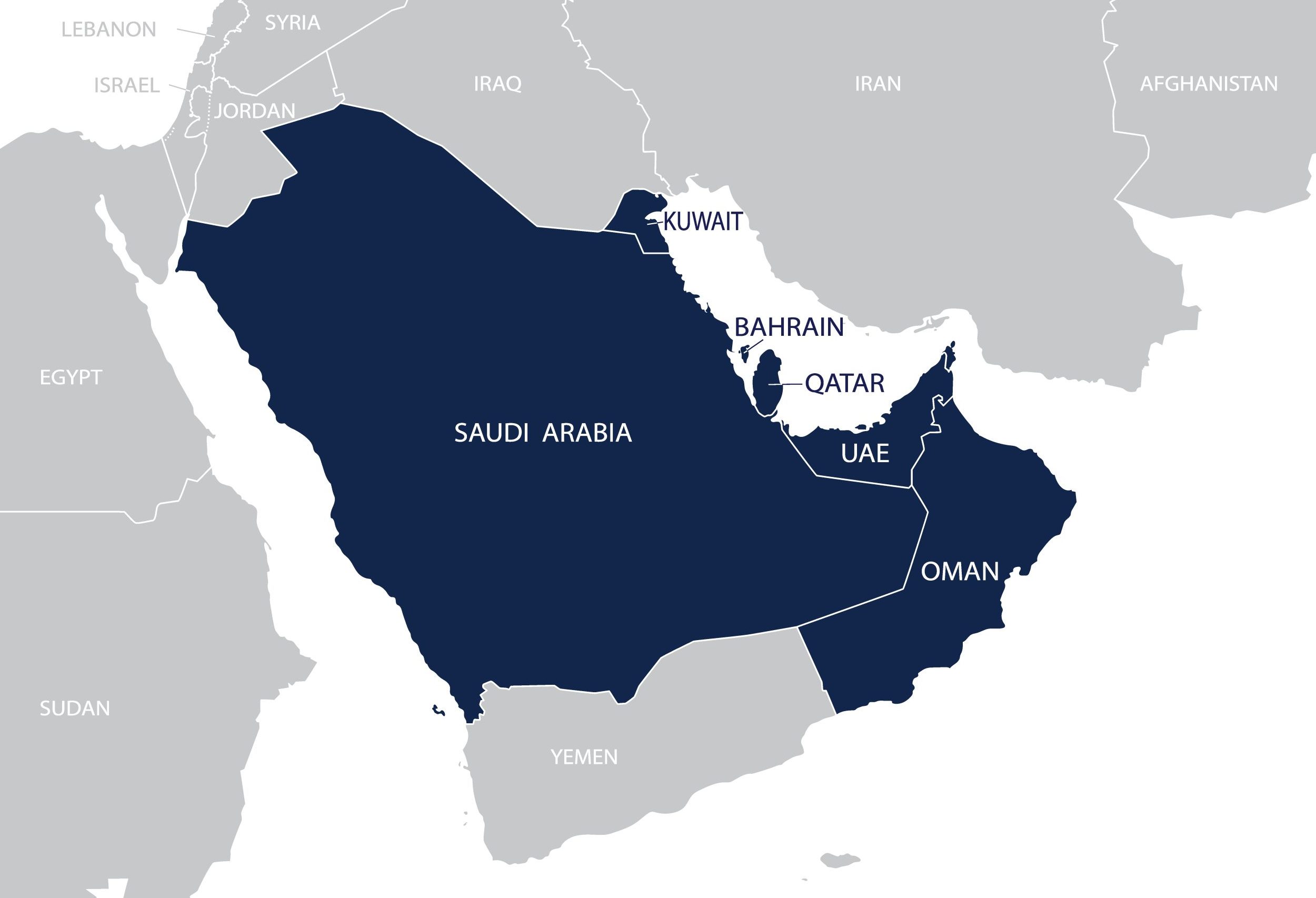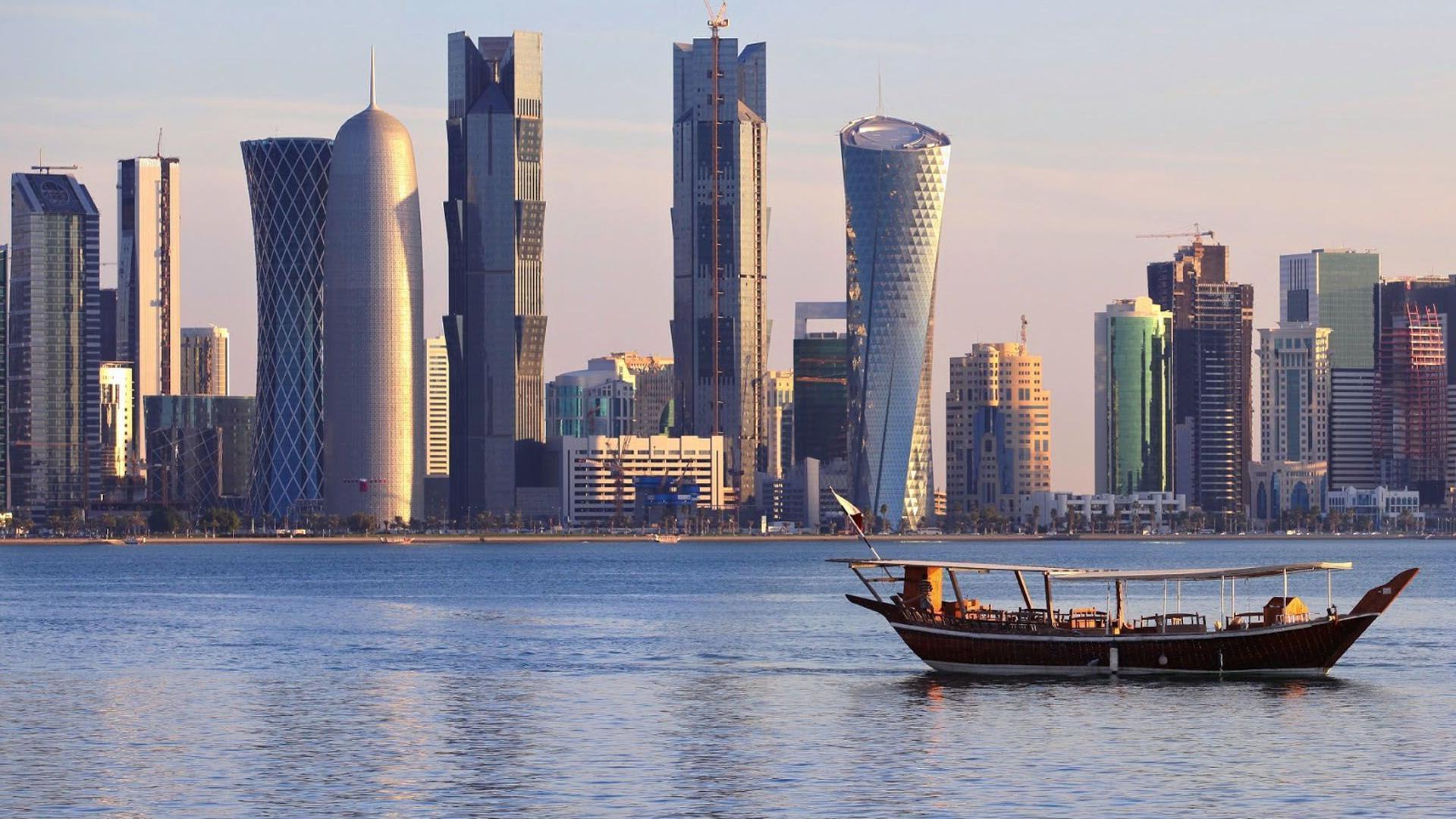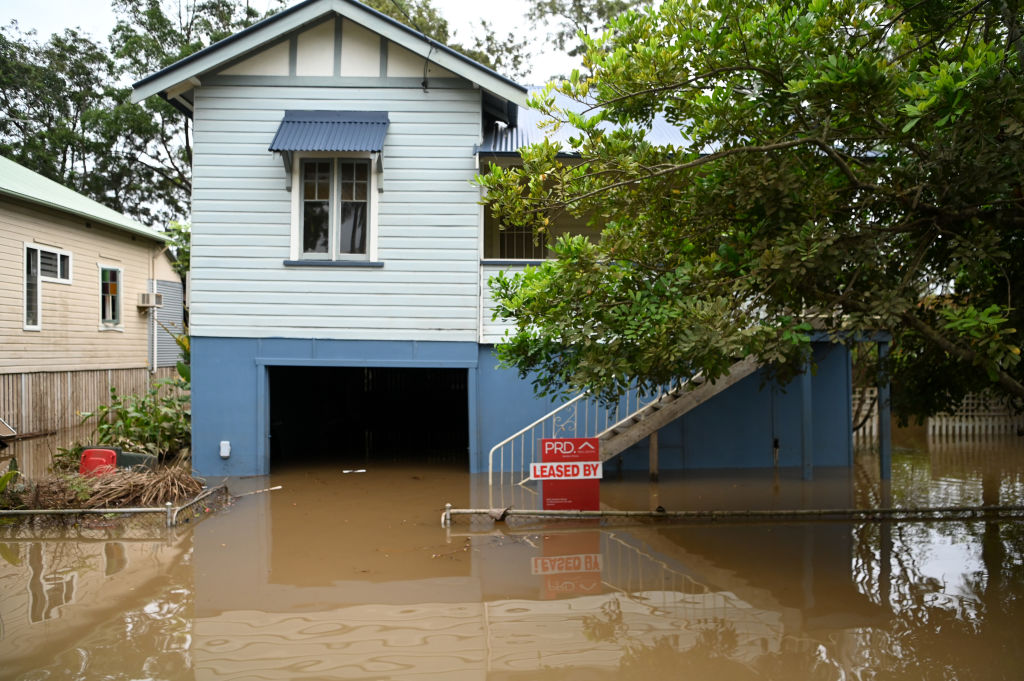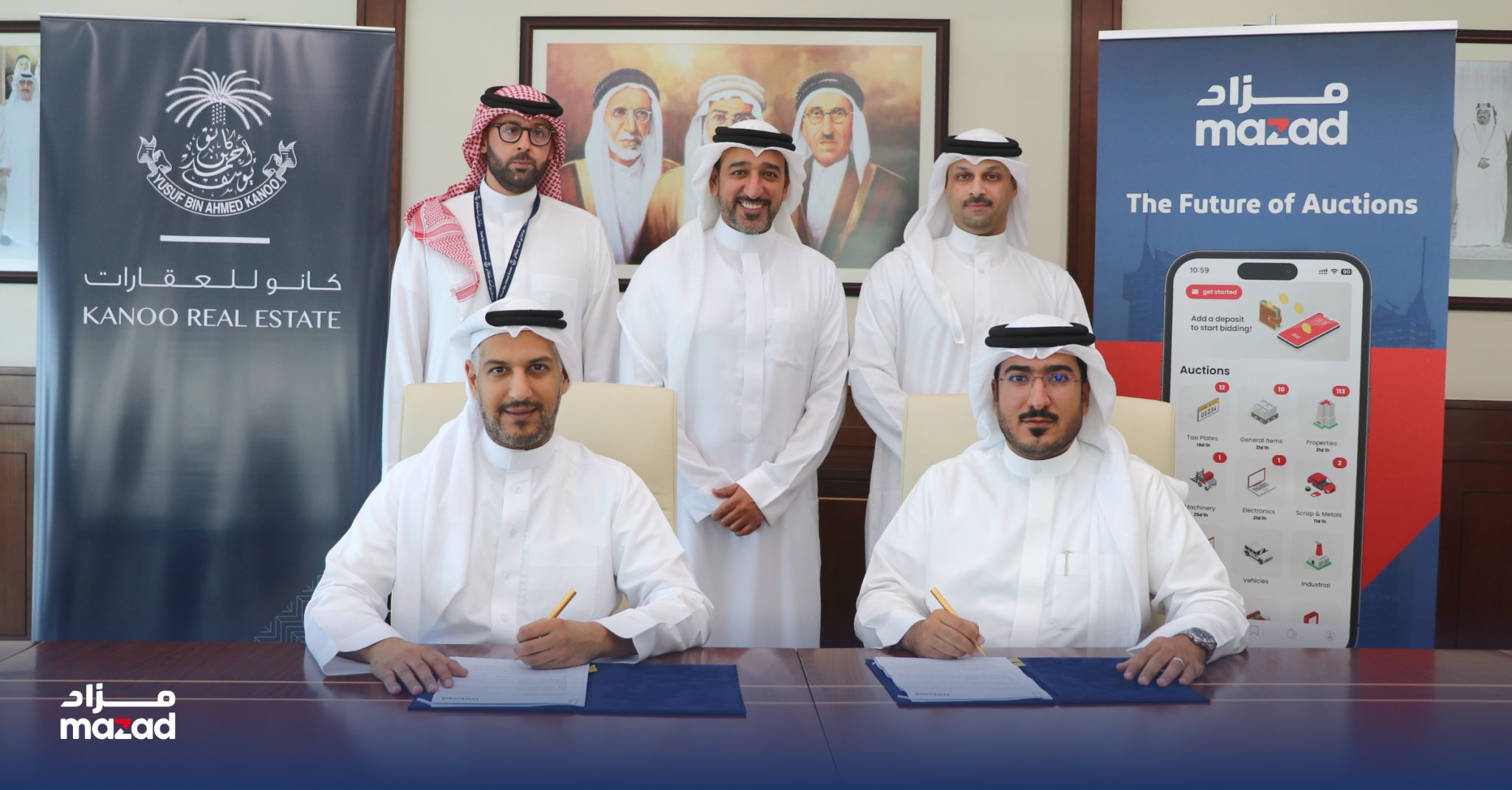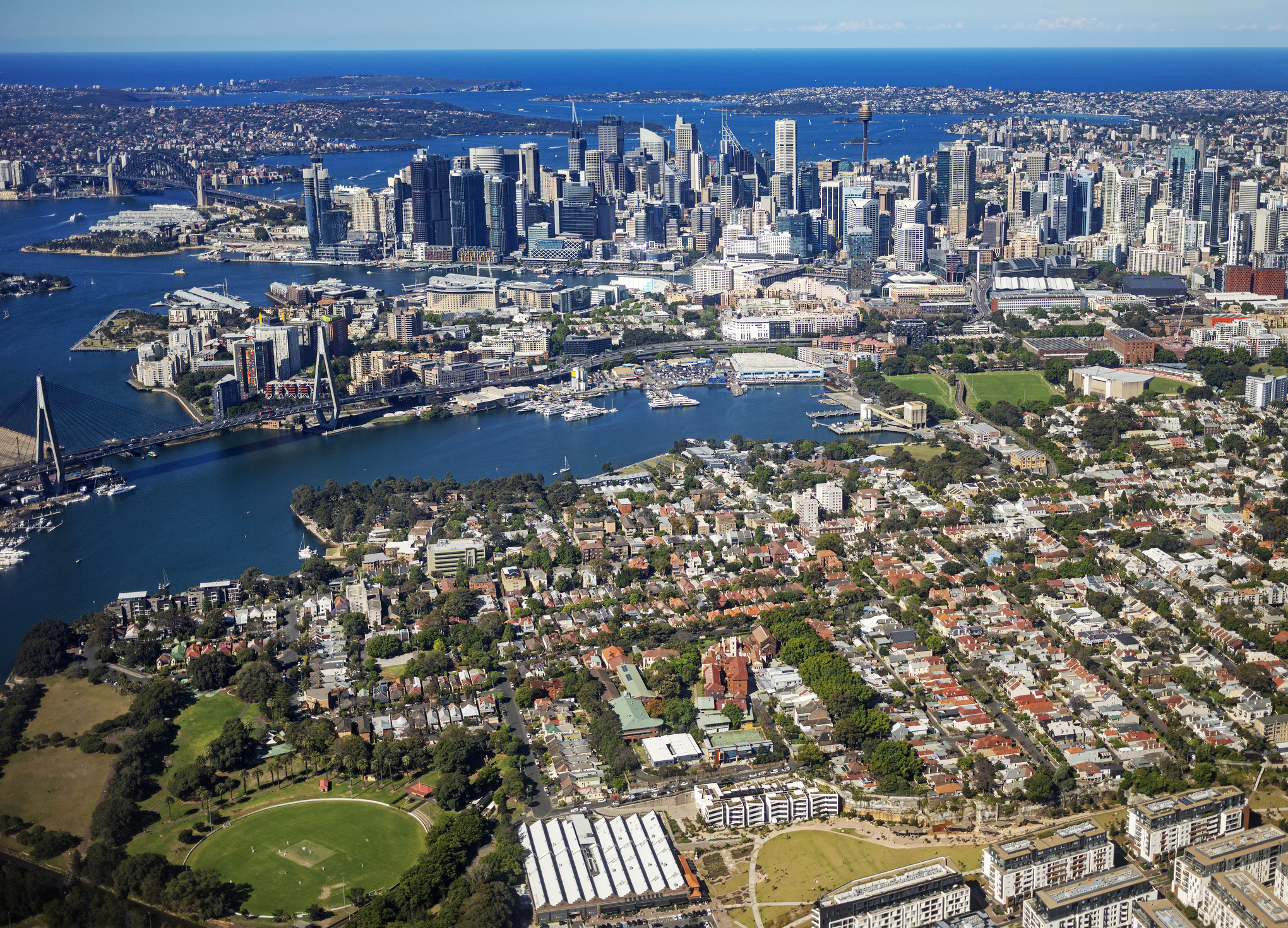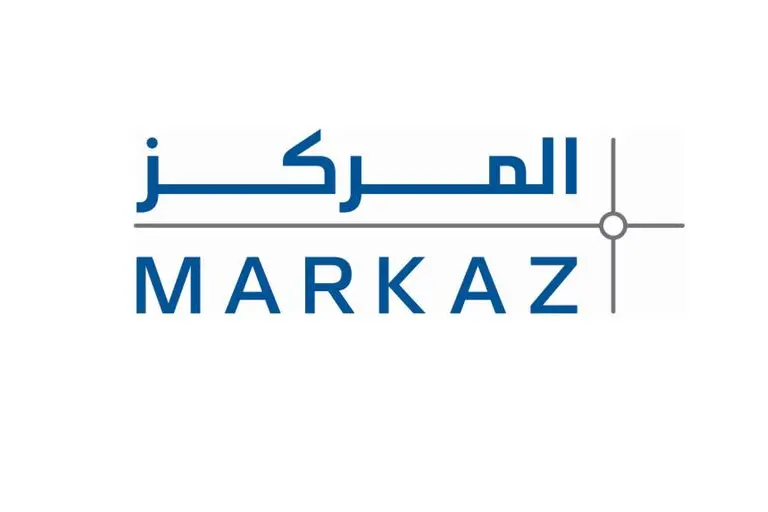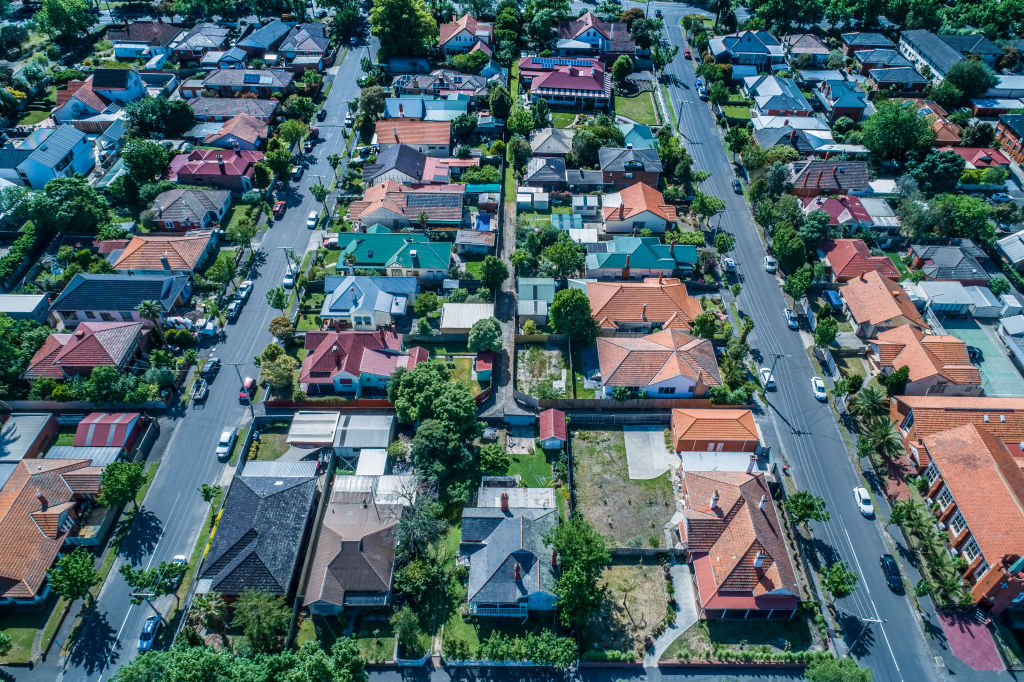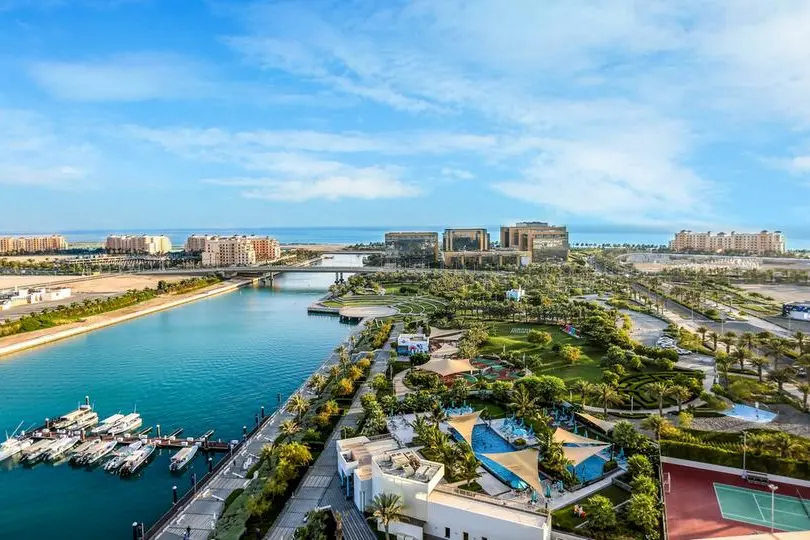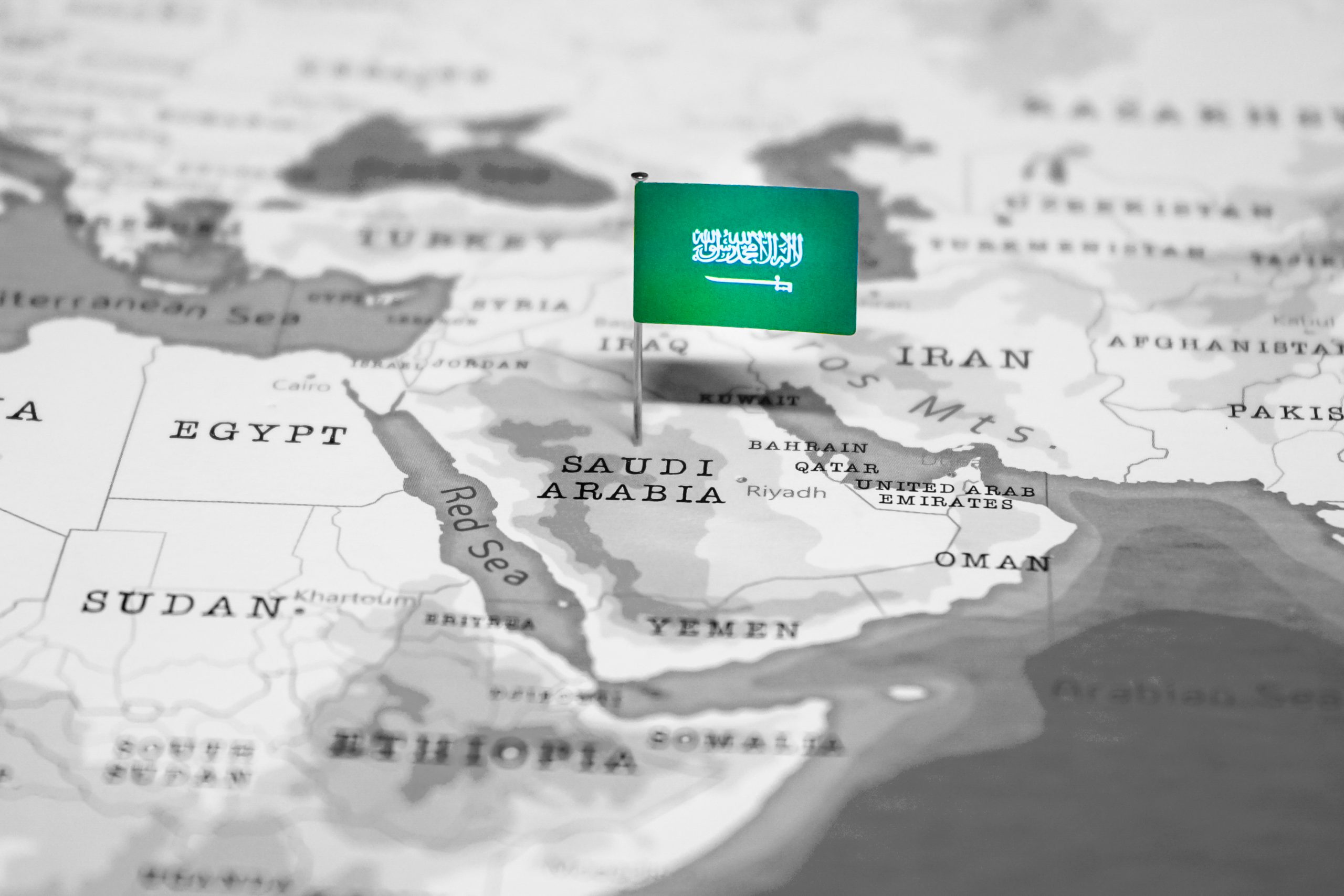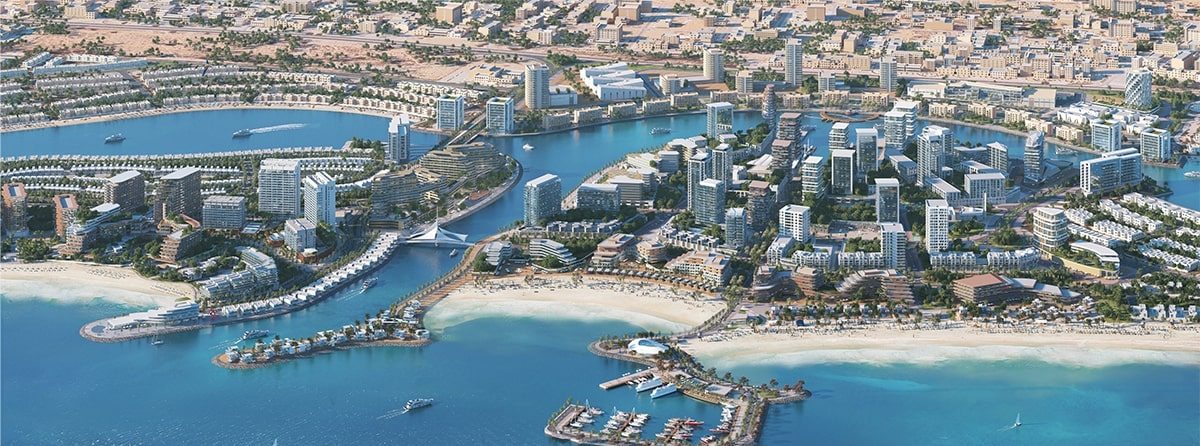ICAEW: GCC non-energy growth remains resilient despite oil output cuts
The latest Economic Insight report for the Middle East, commissioned by ICAEW and compiled by Oxford Economics, predicts a slow recovery for the region in 2024 due to extended oil production curbs. The GCC growth forecast has been revised down to 2.2% from 2.7% three months ago, though non-energy sectors remain resilient, including in Bahrain and Qatar.
The OPEC+ group’s extension of voluntary output cuts through Q3 implies a delayed recovery in GCC energy sectors. GCC oil output will now shrink by 2.6% this year instead of the 1.3% expansion forecasted three months ago. Saudi Arabia, which is cutting production to the greatest extent, will see oil activities contract by 5% this year, down from a predicted growth of 0.7% three months ago. However, as voluntary production cuts are reversed in 2025, energy sectors will begin making positive contributions to GCC growth.
Qatar’s GDP growth projection for this year stands at 2.2% and is expected to rise to 2.9% in 2025. In contrast, Bahrain’s GDP growth is 3.1% this year, but is expected to slow to 1.4% in 2025. Since Qatar is not involved in the OPEC+ production quotas, its gas sector is a priority, with authorities doubling down on the North Field gas expansion project, promising a positive medium-term impact. Bahrain, on the other hand, continues to diversify its economy and reduce reliance on oil revenues. Last year its non-oil growth grew by 3.4%, accounting for nearly 84% of GDP.

High-frequency data paints a positive outlook for non-energy sectors across the GCC. In Saudi Arabia, investments are expected to flow into key sectors supporting giga-projects, including construction, manufacturing, and transportation. Strong momentum in the sports and entertainment sector will also be seen as the country’s transformation continues. The hospitality sector will likely follow, with tourism remaining key to Saudi’s growth agenda. Tourism is a strategic sector in other countries too and will remain a key growth driver. Tourism activity has rebounded strongly, with record visitor numbers across the GCC in 2023, extending into this year.
Non-oil economies will continue to grow despite the GCC’s fiscal positions deteriorating. Saudi Arabia, Bahrain, and Kuwait will likely see budget deficits this year and next as the current oil price level is below the fiscal breakeven point. However, the overall GCC budget position will likely remain in surplus, bolstered by strong financial standings and favorable credit ratings, allowing continued access to funding from capital markets and IPOs.
Hanadi Khalife, Head of Middle East, ICAEW, said: “While geopolitical risks present headwinds for the GCC and wider Middle East, we are encouraged by the ongoing commitment to diversification and sustainability targets. Qatar, for example, became the first GCC sovereign to issue green bonds despite not having explicit net-zero targets. Bahrain is also aligning its non-oil economic growth with its Economic Vision 2030 and COP28 commitments to reduce carbon emissions by 30% by 2035.”

Scott Livermore, ICAEW Economic Advisor, and Chief Economist and Managing Director, Oxford Economics Middle East, said: “Although the region faces escalating pressures amid slowing global economies, the GCC remains relatively positive due to strong bilateral deals and investment. Qatar recently signed a 20-year supply contract with India for 7.5 million tonnes of liquefied natural gas annually, and a 27-year contract with Taiwan for 4 million tonnes. “Bahrain has also seen significant investment growth following the launch of the Golden License initiative in April 2023, which requires a minimum investment of US$50mn and the creation of at least 500 jobs. Bahrain’s financial services sector contributed nearly 18% of GDP, surpassing oil, which contributed 16%.”
The GCC inflation forecast for 2024 has been lowered by 0.3 percentage points to 2.2% this year, with a further slowdown to 2.1% expected next year. Excluding housing rents in some countries, notably Saudi Arabia, inflationary pressures remain contained, with rates below 2% in all GCC countries except Kuwait and the UAE.
Given the exchange rate pegs against the US dollar, GCC central banks tend to track the US Federal Reserve’s policy rates. The US Federal Reserve is expected to begin gradually cutting policy rates in September, totalling a 150bps reduction by the end of 2025.
OPEC’s September report highlights the UAE’s resilience with PMI at 53.3, Fitch’s “AA-” stable rating, 24% trade growth, and nearly 10M Dubai visitors, while global oil demand growth stays steady into 2026.
UAE Ministry of Finance issues Decision No. 173 of 2025 allowing 4% annual tax depreciation on investment properties held at fair value from the beginning of 2025, a move set to boost compliance, investor confidence, and planning flexibility for real estate and capital-intensive businesses.
RAK Properties partners with Hubpay to let international buyers purchase homes in its Mina beachfront community using digital assets like BTC, ETH, and USDT—boosting Ras Al Khaimah’s real estate appeal and innovation drive.
The OpEx First KSA 2025 Summit concluded in Riyadh, bringing together leaders to advance efficiency, sustainability, and innovation in line with Vision 2030. Highlights included the launch of OELeap, AI and digital transformation sessions, and awards honoring excellence in driving Saudi Arabia’s transformation.
The inaugural OpEx First KSA 2025 Summit concluded in Riyadh with resounding success, uniting senior government officials, industry leaders, and global innovators to chart the next phase of Saudi Arabia’s transformation journey. As the Kingdom accelerates efforts to realize ambitions, the event served as the nation’s first dedicated platform for operational excellence, setting the tone for a future built on efficiency, sustainability, and innovation.
The summit opened with the Saudi national anthem and welcome remarks before delegates were introduced to a thought-provoking keynote on industrial automation and the role of advanced technologies in scaling efficiency across vital industries.
Eng. AbdulRazzag Al Aujan, H.E. Ministry of Finance Advisor added, “Operational Excellence is not a passing administrative practice. It is a structured philosophy and a deep-rooted organizational culture founded on discipline, mastery, and excellence in execution. It seeks to maximize efficiency, enhance effectiveness, and create value at every level. It is a continuous journey of improvement and innovation that places customer experience and service quality at the heart of decision-making. It inspires teams to embrace creativity, ownership, and agility in adapting to challenges and opportunities alike. OpexFirst KSA 2025 is a dedicated platform for discussing all the current trends and challenges and uniting the leaders and visionaries of continuous improvement.”
From the outset, discussions underscored the importance of operational excellence as a catalyst for achieving economic diversification, enhancing competitiveness, and strengthening public-private synergies.
Throughout the day, sessions delved into data-driven decision-making, digital transformation, and the integration of artificial intelligence and automation into core operations.
At the event, Kafaa, a leading Saudi consulting firm in Operational Excellence, announced a strategic partnership with Team Assurance to launch OELeap, a next-generation platform designed to transform the way factories achieve operational excellence in the Kingdom.
“This partnership with Team Assurance brings together global best practices and local expertise to empower Saudi factories with tools that drive efficiency, competitiveness, and sustainable excellence,” said Eng. Majed Almeleak, CEO and Board Member at Kafaa.
Yasmin Bin Mobki, General Manager of Privatization, and PMO, Ministry of Human Resources and Social Development reiterated, “The OpEx First KSA 2025 Summit was an excellent platform for exchanging knowledge and experiences on operational excellence. I was pleased to contribute to the panel discussion on how organizations can embed innovation and empower their people to sustain transformation. Summits like this are vital for driving collective learning and accelerating progress toward Vision 2030”
The conference also spotlighted awards and a workshop by the King Saud University on Business Process Improvement. Other topics covered are sustainability, examining how Saudi Arabia’s giga-projects are embedding green innovation in line with the Saudi Green Initiative and the nation’s net-zero 2060 targets.
Distinguished speakers from leading organizations such as Ministry of Finance, HRSD, SIPCHEM, Roads General Authority, EXPRO, Red Sea Global, Ma’aden amongst many other renowned entities and ministries, contributed insights on how operational excellence principles are shaping workforce transformation, strengthening supply chains, and ensuring long-term resilience in an evolving global economy.
In addition to the strategic sessions, the summit offered delegates an exclusive exhibition tour and networking opportunities, fostering partnerships designed to accelerate transformation and unlock new opportunities for growth.
For instance, as Gold Sponsor of OpEx First KSA 2025, Cyborg Automation Hub is proud to help organizations advance Saudi Vision 2030 by uniting AI, automation at scale, and process intelligence into real operational results. Together with their ecosystem partners, they are enabling transparent, sustainable, and resilient automation across Saudi industry
OpEx First KSA 2025 closed with an awards ceremony recognizing the leaders in operational excellence in the Saudi, followed by a strong call to action, affirming that operational excellence is not only a management framework but a national imperative for achieving Vision 2030 and positioning Saudi Arabia as a global hub for innovationand sustainable development.
Chris Dixon, a partner who led the charge, says he has a ‘very long-term horizon’
Americans now think they need at least $1.25 million for retirement, a 20% increase from a year ago, according to a survey by Northwestern Mutual
Fitch Ratings lifted its 2025 global growth forecast to 2.4% (up from 2.2%), with upgrades for China (4.7%), the eurozone (1.1%), and the US (1.6%). Still, growth remains well below trend as US tariffs weigh heavily on outlook, consumer spending slows, and inflation pressures persist.
Fitch Ratings has raised its world growth forecasts for 2025 moderately since the June Global Economic Outlook (GEO) on better-than-expected incoming data for 2Q25. But there is now evidence of an underlying US slowdown in ‘hard’ economic data and positive surprises on eurozone growth have partly reflected US tariff front-running. Fitch still expects world GDP to slow significantly this year.
Global growth is now forecast to be 2.4% in 2025, up 0.2pp since June but a sizeable slowdown from 2.9% last year and below trend. China’s forecast has been raised to 4.7% from 4.2%, the eurozone’s to 1.1% from 0.8% and the US’s to 1.6% from 1.5%. World growth for 2026 is 0.1pp higher at 2.3%.
There has been a reduction in uncertainty over US tariff policy after a flurry of announcements. Our latest estimate of the average US effective tariff rate (ETR) is 16%, very close to the rate assumed in June. Mexico and Canada face lower ETRs, due to better USMCA compliance and Europe’s ETR is also slightly lower, but this is offset by higher-than-expected rates for Asia excluding China.
“Greater clarity about US tariff hikes does not alter the fact that they are huge and will reduce global growth. And evidence of a slowdown in the US is now appearing in the hard data; it’s no longer just in the sentiment surveys,” said Brian Coulton, Chief Economist at Fitch.
Pass-through from this huge jump in the ETR to US CPI inflation has so far been modest. There is some evidence in the US national accounts that the tariff shock has been absorbed partly by downward pressures on corporate profits, but we expect pass-through to accelerate later this year.
Higher inflation will dampen real wage growth and weigh on US consumer spending, which has already slowed notably in 2025. Job growth has also decelerated markedly, partly reflecting the impact of the immigration squeeze on labour force growth. A widening fiscal deficit should support demand in 2026, but Fitch expects the US annual average GDP growth rate to remain well below trend at 1.6% next year.
China’s export growth has held up well in the face of the US tariff shock as a depreciating nominal effective exchange rate and falling export prices have helped a redirection of foreign sales. Fiscal easing is supporting growth, but private domestic demand growth seems to be weakening, and deflation is increasingly entrenched.
Eurozone exports are unlikely to sustain their 1H25 pace and, with the consumer recovery fading, we do not expect GDP to expand in 2H25. German fiscal easing will provide more support next year.
The weakening in the US job market should persuade the Federal Reserve to cut rates more quickly than we previously anticipated. We expect cuts of 25bp in September and December, with three more in 2026.
With the ECB now looking unlikely to lower rates again, we see little prospect of a rebound in the dollar after the broad-based depreciation in 1H25. Long-term 30-year government bond yields in the US, UK, Germany and Japan continue to see upward pressure, possibly reflecting concerns about supply.
Chris Dixon, a partner who led the charge, says he has a ‘very long-term horizon’
Interior designer Thomas Hamel on where it goes wrong in so many homes.
The European Council confirmed the first EU–Egypt summit will be held in Brussels, bringing together President El-Sisi, President Costa, and President von der Leyen to advance the 2024 strategic partnership and address regional and global challenges.
The European Council has officially confirmed that the first-ever EU–Egypt summit will be held in Brussels on October 22, 2025, marking a milestone in relations between Cairo and Brussels. The high-level meeting will bring together Egyptian President Abdel Fattah El-Sisi, European Council President António Costa, and European Commission President Ursula von der Leyen.
This historic summit comes within the framework of the comprehensive strategic partnership launched in March 2024, which laid the foundations for deeper cooperation across multiple fields. The partnership reflects a shared commitment to advancing political dialogue, economic development, and social stability, while reinforcing the role of both the EU and Egypt as pivotal actors in the Mediterranean region.
Discussions at the summit will cover a broad spectrum of critical global and regional issues. Key priorities will include the evolving situation in the Middle East, the implications of Russia’s war against Ukraine, and the importance of defending multilateralism in a polarized international order. Leaders will also address migration management, trade expansion, climate resilience, and security collaboration, all of which are essential to building a sustainable and prosperous future for both Europe and Egypt.
The European Council emphasized that this summit is not only symbolic but also strategically important, as it will serve as a platform to reaffirm mutual interests and outline tangible steps for implementing the strategic partnership. The agenda will highlight opportunities for investment in infrastructure, renewable energy, digital transformation, and green growth, as well as initiatives to enhance people-to-people exchanges, education, and cultural cooperation.
By hosting this first-of-its-kind summit, the EU aims to send a clear message of support for Egypt’s role as a key regional partner in promoting stability, managing migration flows, and driving economic integration. For Egypt, it offers an opportunity to deepen its ties with one of its largest trading partners and investors, while showcasing its role as a bridge between Africa, the Arab world, and Europe.
Chris Dixon, a partner who led the charge, says he has a ‘very long-term horizon’
Following the devastation of recent flooding, experts are urging government intervention to drive the cessation of building in areas at risk.
OPEC’s September report highlights the UAE’s resilience with PMI at 53.3, Fitch’s “AA-” stable rating, 24% trade growth, and nearly 10M Dubai visitors, while global oil demand growth stays steady into 2026.
The Organisation of the Petroleum Exporting Countries (OPEC) in its Monthly Oil Market Report (MOMR) for September 2025 highlighted that non-oil activities in the United Arab Emirates (UAE) continued to demonstrate strong resilience, with overall output growth remaining steady. The report noted that the UAE’s Purchasing Managers’ Index (PMI) rebounded in August to 53.3, after easing in July to 52.9, its lowest level in four years, as regional uncertainty and intensifying competition weighed on new orders.
The report further underlined that the country’s macroeconomic resilience was also reflected in Fitch Ratings’ affirmation of the UAE’s sovereign credit rating at “AA-” with a stable outlook, underscoring the strength of sovereign assets and bolstering investor confidence.
In addition, the strong performance of non-oil trade reinforced diversification efforts, with foreign trade expanding by 24% in the first half of 2025, far outpacing global trade growth of 1.8%. This, the report emphasized, strengthens the UAE’s role as a global trade hub and underpins the dynamism of non-oil sectors throughout the year.
Tourism was also highlighted as a key driver of growth, with Dubai welcoming nearly 10 million visitors during the first six months of the year. This performance is in line with the Emirate’s “D33” economic agenda, which aims to position Dubai as a leading global destination, contributing to fiscal revenues and enhancing overall macroeconomic stability.
On the global oil market, the report stated that the forecast for world oil demand growth in 2025 remains at about 1.3 million barrels per day (mb/d), y-o-y, unchanged from last month’s assessment. Within the regions, oil demand in the OECD is projected to grow by around 0.1 mb/d in 2025, while non-OECD demand is expected to increase by about 1.2 mb/d.
For 2026, global oil demand is forecast to rise by 1.4 mb/d, also unchanged from the previous month’s assessment. Of this, OECD demand is projected to expand by 0.2 mb/d y-o-y, while non-OECD demand is forecast to increase by around 1.2 mb/d. The report added that transportation fuels — including gasoline, jet fuel and diesel — are set to remain the main drivers of demand growth in both years, followed closely by LPG and naphtha used in the petrochemical sector.
Chris Dixon, a partner who led the charge, says he has a ‘very long-term horizon’
UAE Ministry of Finance issues Decision No. 173 of 2025 allowing 4% annual tax depreciation on investment properties held at fair value from the beginning of 2025, a move set to boost compliance, investor confidence, and planning flexibility for real estate and capital-intensive businesses.
In a major move aimed at promoting consistency and fairness in the UAE’s evolving corporate tax landscape, the Ministry of Finance has issued Ministerial Decision No. 173 of 2025, allowing tax depreciation on investment properties (IP) held at fair value.
Effective January 1, 2025, this significant amendment is expected to benefit a broad base of businesses in the real estate and capital-intensive sectors, driving compliance, planning flexibility, and investor confidence, said a tax expert.
Dhruva, a leading tax advisory firm in the Middle East, applauds this development, which addresses a long-standing concern among taxpayers who follow the fair value model and have been unable to claim depreciation deductions for their investment properties.
“This decision is a welcome step towards aligning accounting and tax principles in the UAE,” said Sandeep Kumar, Corporate Tax Partner, Dhruva. “It provides optionality for businesses and creates consistency in how investment properties are treated for tax purposes. Importantly, it gives companies a one-time opportunity to elect the realization basis of taxation — a choice that is irrevocable and requires careful evaluation.”
The new provisions allow a taxable person to claim depreciation at 4% per annum on the original cost of the investment property—calculated on a pro-rata basis depending on the holding period. However, to benefit from this, the entity must elect for the realization basis of taxation, a choice that is irrevocable and must be exercised within a specified timeframe.
Further, the election must be made at the level of the taxable person and is irrevocable once exercised. Businesses that fail to elect within the prescribed timeline will permanently forfeit the right to claim depreciation on investment properties held at fair value. The Ministry has also outlined specific provisions for properties transferred under Qualifying Group Relief (QGR), Business Restructuring Relief (BRR), or within Tax Groups (TG), ensuring continuity and clarity in such complex arrangements.
Moreover, since depreciation under the fair value model does not appear in financial accounts, claiming it for tax purposes may create a temporary difference — giving rise to a deferred tax liability under international accounting standards.
Importantly, the decision also clarifies the tax implications upon realization of such properties, including adjustments for previously claimed depreciation. Special provisions are also laid out for intra-group transfers, business restructurings, and tax groups upon realization of such properties.
“Taxpayers should not view this as a routine compliance update,” added Kumar. “It is a strategic opportunity to align their tax positions with business realities. At Dhruva, we’re committed to helping businesses make informed decisions under the new corporate tax regime.”
For businesses holding real estate at fair value, this update underscores the importance of proactive planning and early elections in upcoming tax filings considering the election for the realization basis may have wider consequences beyond real estate — potentially affecting the treatment of other fair-valued assets and unrealized gains or losses. Dhruva advises UAE businesses to carefully evaluate the long-term impact of electing the realization basis.
Chris Dixon, a partner who led the charge, says he has a ‘very long-term horizon’
RAK Properties partners with Hubpay to let international buyers purchase homes in its Mina beachfront community using digital assets like BTC, ETH, and USDT—boosting Ras Al Khaimah’s real estate appeal and innovation drive.
Hubpay will support RAK Properties in attracting a new class of international investors looking to purchase property in its Mina beachfront community using digital assets
RAK Properties, Ras Al Khaimah’s leading publicly listed real estate developer, has announced a strategic partnership with Hubpay, the UAE’s leading ADGM-regulated fintech, to enable international clients to purchase property using digital assets.
The collaboration allows RAK Properties to attract a new class of global buyers looking to invest in Ras Al Khaimah’s booming real estate market. Clients can now pay for property using major digital assets like USDT, BTC, ETH, and more. Hubpay‘s regulated platform ensures payments are instantly and seamlessly converted to UAE dirhams and settled directly into RAK Properties’ account.
The new service expands the investment appeal of the developer’s signature Mina community, tapping into a growing ecosystem of digitally-savvy international investors. By diversifying its payment options, RAK Properties is evolving the investment landscape and cementing its position as an innovative leader in one of the world’s most dynamic real estate markets.
Rahul Jogani, Chief Financial Officer at RAK Properties, said: “Our new partnership with Hubpay is another step forward with our strategy of innovation and accessibility as we continue to make investments in Mina, and Ras Al Khaimah, easier and more attractive to a growing international clientele. By enabling and supporting the use of digital assets, we are engaging with a new ecosystem of digitally and investment savvy customers while at the same time strengthening RAK Properties’ status as a forward-thinking brand as well as a trusted master developer.”
Kevin Kilty, CEO of Hubpay, said: “This partnership is about enabling a leading real estate developer, RAK Properties, to attract a new class of global buyers looking to purchase property with digital assets. Our regulated solution provides trust and infrastructure for high-value transactions, ensuring the process is secure, compliant, and seamless for global clients. We’re proud to be the payment engine that powers these prestigious transactions for a forward-thinking brand like RAK Properties.”
As part of the new partnership, RAK Properties will not directly handle any digital assets. All payments will be processed through Hubpay and its VARA-licensed partners, ensuring every transaction is fully compliant and transparent.
The collaboration aligns with Ras Al Khaimah’s Vision 2030 strategy and boosts RAK Properties’ long-term aspirations as it celebrates its 20th anniversary. Construction across Mina is continuing at pace, with more than 800 units scheduled for delivery before year-end, demonstrating the waterfront development’s growing appeal to diverse investors from the UAE and beyond.
Chris Dixon, a partner who led the charge, says he has a ‘very long-term horizon’
DHL eCommerce has acquired a minority stake in AJEX Logistics Services, a GCC supply chain and transportation company, to capitalize on Saudi Arabia’s e-commerce growth and contribute to Saudi Vision 2030. The partnership will enhance delivery services and customer experience, with DHL eCommerce having representation on AJEX’s management board and the option to increase its stake.
DHL eCommerce, the e-commerce logistics specialist of DHL Group, has officially completed its minority stake acquisition in AJEX Logistics Services. AJEX is a leading GCC supply chain and transportation company, owned by Ajlan & Bros Holding Group. The move marks a significant milestone in DHL’s expansion into the rapidly growing Saudi Arabian parcel market and AJEX expansion across the Middle East.
The strategic partnership positions DHL eCommerce and AJEX to capitalize on the anticipated double-digit growth in Saudi Arabia’s e-commerce sector, a key pillar of the Kingdom’s Vision 2030, as well as across the broader Middle East region. AJEX started its operations in 2021 and has rapidly emerged as a leading regional and domestic parcel provider with a network of over 60 facilities, 1,200 vehicles and a team of 2,000 professionals. With AJEX, and the international reach and operational know-how of DHL eCommerce, customers across the region will benefit from enhanced delivery services and experience.
“As part of our Strategy 2030 ‘Accelerate Sustainable Growth’, DHL Group is investing EUR 500 million in high-potential markets like Saudi Arabia,” said Pablo Ciano, CEO of DHL eCommerce. “The customer-centric approach and strong regional presence of AJEX, combined with DHL’s global expertise, will enable us to deliver reliable, affordable, and sustainable parcel solutions across the region.”
“By combining regional expertise with global reach, this partnership is set to elevate standards of efficiency and reliability across the region’s delivery sector and contribute to critical Saudi Vision 2030 goals,” said Ajlan Mohamed Al Ajlan, Group Managing Director of Ajlan & Bros Holding Group. “United by shared values of customer-centricity, innovation, and teamwork, the AJEX-DHL partnership will play a crucial role in powering the e-commerce boom across Saudi Arabia and the wider Middle East, supporting core high-growth sectors, and helping to drive broader industry development.”
“The acquisition of a minority stake by DHL eCommerce in AJEX marks a major milestone in our growth. A testament to the market credibility we have earned thanks to the speed and precision of our services, we are now ready to enter the next phase of growth,” said Mohammed Albayati, Group CEO of AJEX.
“For our customers across Saudi Arabia and the Middle East region, this means access to faster, smarter, and more innovative delivery services, powering the region’s fast-growing e-commerce markets.”
As part of the partnership, DHL eCommerce will have representation on the management board at AJEX and holds the option to increase its stake to a majority position in the future. DHL eCommerce, along with the business units DHL Express, DHL Supply Chain, and DHL Global Forwarding, are now present in the country.
Going forward, AJEX will be branded as ‘AJEX, a partner of DHL eCommerce’.
Chris Dixon, a partner who led the charge, says he has a ‘very long-term horizon’
Gold’s value surged 29% in 2025, indicating strong investor allocations and central bank buying, making it a top-performing asset in 15 years.
Gold is back in the spotlight after US President Donald Trump moved to oust Federal Reserve Governor Lisa Cook, sparking concerns about central bank independence and boosting haven demand.
Josh Gilbert, Market Analyst at eToro shares: It’s been a stellar year for gold, with the precious metal up 29%, making it one of the best performing assets in 2025 and its best year in 15 years. This builds on the 27% gain we saw in 2024, underpinned by rising investor allocations, uncertainty becoming the new normal, and consistent central bank buying. Owning a slice of the shiny metal is more accessible than ever. Instead of stashing away coins or bars in a vault, investors can now gain exposure via exchange-traded funds (ETFs).
Think of gold as a financial security blanket, it’s the asset many turn to when storms are brewing and offers beginner, intermediate and advanced investors a ‘safe haven’ in times of uncertainty. In today’s world of inflation worries, tariffs and geopolitical conflicts all creating uncertainty, gold as a portfolio stabilizer continues to prove its worth.
In its own right, UAE markets are also being seen as something of a ‘safe-haven’ by investors with limited impact from tariffs and support by strong economic fundamentals. eToro’s latest Retail Investor Beat survey shows this in the UAE. Confidence in the local economy and markets is running high, with 85% of investors backing UAE-listed stocks, but almost half (49%) view gold as the most resilient asset in the face of ongoing trade volatility.
This is a clear sign that while local investors in the UAE are bullish on their home markets, they’re not blind to global risk and are allocating to commodities like gold as a form of protection. With over 90% of retail investors expecting trade tensions to impact their portfolios in the coming months, it is no surprise that allocations to defensive assets are rising alongside equities.
So what’s next for gold? The fundamentals point to further upside, supported by incoming Fed rate cuts, a weaker US dollar, and resilient investment demand. With gold already outpacing major equity indices and with central bank buying adding to the momentum, the precious metal is set to remain a key focus for both global and UAE investors as uncertainty remains.
Ultimately, for long-term investors, gold has clearly justified its position in a diversified portfolio. It offers some stability against risk events while providing a reliable longer-term store of value and, importantly, as a portfolio diversifier. Even in the age of digital assets and complex financial products, a bit of that classic yellow metal can provide balance and reassurance.
Chris Dixon, a partner who led the charge, says he has a ‘very long-term horizon’
Cybersecurity is crucial for children’s financial literacy in a digital world. Parents should teach responsible money management, setting spending limits, using secure payment methods, and tracking subscriptions.
As children are now growing up in a world where money is mostly digital, cybersecurity has become a fundamental part of financial literacy. Unlike previous generations, their first experiences with money are not only piggy banks, but in-app purchases, gaming loot boxes, and prepaid cards connected to digital wallets. In Kaspersky’s “Digital Schoolbag: A Parent’s Guide for the School Year”, our experts share insights on how to teach kids to manage money responsibly and securely in the digital world.
Back-to-school season is not only about new books and uniforms, it’s also a crucial time to build healthy habits that will stay with children for life and help to avoid many problems. And real problems are not rare: 31% of parents in the UAE participated in the “Growing Up Online” survey admitted that they lost money because of their children’s online behavior, while 19% of respondents stated that their child’s device was infected with a virus.
If kids aren’t aware of online risks, even strong financial literacy won’t protect them from phishing disguised as giveaways, fake in-game deals, sneaky subscription renewals, or identity theft. By integrating financial education with digital protection, parents can prepare their kids not only to manage money smartly, but also to defend themselves against the cyberthreats that come with it.
Here’s what Kaspersky experts recommend parents teach their kids about managing their money responsibly and securely:
-
Set clear spending limits
Helping children understand boundaries is the first step in building both financial discipline and digital awareness. Start by establishing a basic budget structure for your child’s typical expenses:
- School supplies
- Food or lunch money
- Sports or hobby-related purchases
- Entertainment (apps, games, subscriptions)
Rather than micromanaging every purchase, talk about percentages. For example: “70% is for school-related spending, 20% for entertainment and 10% for saving.” Use this opportunity to introduce digital money literacy: explain how in-app purchases, microtransactions, or hidden fees can drain their balance if they’re not careful.
-
Use secure payment methods
While giving children cash may seem simple, it comes with obvious downsides, it can be lost, stolen, or spent without any trace. A safer and more educational alternative is to introduce child-friendly bank cards or digital wallets that come with built-in parental controls. These tools let you set spending limits, receive instant purchase notifications, track transactions in real time, and even block certain categories like online marketplaces or gaming platforms. This way, kids still enjoy the independence of managing their own money, but parents have the reassurance of oversight and can step in if something looks unusual.
Equally important is protecting the digital environment where these payments take place. Banking apps and online stores can become targets for cybercriminals, so installing a cybersecurity solution that includes safe browsing and secure payment protection is essential.
3. Secure devices and financial accounts
Children may not fully understand the importance of account security, but one weak password or stolen device can expose all their financial tools.
As a parent, you can help by:
- Enabling two-factor authentication (2FA) for every app that might be used for online purchases
- Using a password manager, which stores credentials securely and allows family access if something goes wrong
- Teaching the basics of strong passwords: including at least 12 characters, avoiding names or birthdays and not reusing them across platforms.
By turning these habits into everyday practice, you give your child the tools to keep their finances and their personal data safe.
4. Keep track of subscriptions and recurring charges
One of the easiest ways for children to lose track of their spending is through subscriptions. Today, many games, learning tools, and streaming services use recurring payment models instead of one-time purchases. A child may sign up for a “free trial” without realizing it will automatically convert into a monthly charge once the trial period ends. Because these fees are small and recurring, they often go unnoticed until the balance is drained or a parent checks the account.
Teach your child to:
- Always ask before starting a free trial
- Look for “auto-renew” settings and learn how to cancel them
- Set calendar reminders for trial end dates
On the parental side, review the app store purchase history regularly and scan your email inbox for renewal notifications that might otherwise slip through. Many banking apps and security tools can also flag recurring charges or send real-time alerts for every transaction, making it easier to stay on top of spending. By turning subscription management into a shared responsibility, you help your child understand that “invisible” charges are still real expenses that require attention.
“When we talk about financial literacy for children, we can’t stop at teaching them how to budget or save. Their money is already digital, which means their first financial decisions happen online: in games, apps, and digital wallets. Without cybersecurity awareness, those lessons remain incomplete. Helping kids recognize scams, protect their accounts, and use secure payment tools is just as important as teaching them the value of money itself,” says Andrey Sidenko, Lead web content analyst at Kaspersky.
Chris Dixon, a partner who led the charge, says he has a ‘very long-term horizon’
The EU has agreed to a 500-million Euros Macro-Financial Assistance program with Jordan, aimed at supporting Jordan’s economic stability and reform efforts.
The European Commission announced that the European Union has signed a memorandum of understanding (MoU) with Jordan to implement a 500-million Euros Macro-Financial Assistance (MFA) program, under the strategic and comprehensive partnership agreed earlier this year.
The commission said that the first disbursement is expected within a month of signing, noting that the program aims to support economic stability, growth, long-term resilience, and reform efforts in Jordan, according to Al Mamlaka TV.
The MoU, signed on behalf of the EU by Commissioner Valdis Dombrovskis, represents the fourth pillar of the MFA package approved by the European Parliament and the Council in April 2025. The funding will be disbursed over two and a half years, in line with Jordan’s progress on the agreed reform agenda and policy measures, helping the Kingdom cover part of its external financing needs and advance its economic reforms.
The agreed reforms cover public financial management, governance and anti-corruption, social protection and labor market policies, green transition, and the business environment. Disbursement of funds is subject to adherence to the defined policy conditions.
European Commission President Ursula von der Leyensaid: “Jordan is a strategic partner for the European Union, and we are investing 500 million Euros in its future. This commitment aligns with Jordan’s reform agenda and supports progress in areas such as sustainable finance, green energy, and anti-corruption.”
She added, “By addressing immediate economic needs and promoting long-term prosperity, we support Jordan in building a stable and inclusive society. Today’s agreement reflects our confidence in Jordan’s ability to overcome regional disruptions and deliver reforms that benefit all its citizens”.
High Representative for Foreign Affairs and Security Policy Kaja Kallas stated: “The EU is fulfilling its partnership with Jordan. This 500 million Euros assistance package will support reforms and stability, both vital for the EU. From hosting large numbers of Syrian refugees to serving as a key conduit for aid to Gaza, Jordan remains a pillar of regional stability and a close partner of the EU”.
Commissioner Valdis Dombrovskis added: “I welcome the agreement with Jordanian authorities on the policy conditions underpinning the fourth MFA operation. The program aims to strengthen Jordan’s economy and facilitate reform in key areas such as public finance and labor markets.”
Commissioner Dubravka Šuica also noted that the signing “marks a significant milestone in the EU’s partnership with Jordan. The Macro-Financial Assistance program represents a major achievement in our strategic and comprehensive partnership. It reflects our shared commitment to supporting the resilience of Jordan’s economy and its reform ambitions. Jordan is a close and trusted partner of the EU and a key element of stability and cooperation in the Mediterranean”.
This MFA operation responds to Jordan’s request in October 2023 for financial assistance following the regional instability triggered by the Israeli war in Gaza.
The commission proposed a new 500 million Euros program in April 2024, which was approved by the Parliament and Council in April 2025.
This assistance complements Jordan’s Economic Reform and Adjustment Program with the International Monetary Fund, as well as the recent $700 million Resilience and Sustainability Facility aimed at supporting the water and electricity sectors and enhancing health emergency preparedness.
Chris Dixon, a partner who led the charge, says he has a ‘very long-term horizon’
After a strong first half and a brief August lull, the GCC debt market is gearing up for a new wave of issuances, with Saudi Arabia and the UAE expected to lead activity, driven by robust investor demand and healthy liquidity.
The GCC debt capital market is getting ready for another wave of new issuances following an uninterrupted flow of transactions in the first half of the year and a marked lull in the first three weeks of August.
“We had a phenomenal first half. The pipeline in the second half could be smaller, unless a drop in rates sparks a pre-funding strategy toward year-end, pulling transactions planned for early 2026 into November,” Victor Mourad, Co-Head of CEEMEA Debt Financing at Citi.
“The August lull comes down to two factors: heavy volumes in the first half and a natural lag as issuers prepare for the Q3 window, which will kick off from this week onwards,” he added.
While the August supply has fully tapered off in the Middle East, the supply in Europe and Asia has not stopped, and the USIG has seen a record month.
The last major issuance was UAE developer Binghatti’s $500 million 5-year Senior Unsecured sukuk, in early August, but Saudi Arabia remained the GCC region’s top issuer of bonds and sukuk in the first half of 2025, despite debt issuances falling 20% year-on-year (YoY). Saudi companies raised $47.93 billion through 71 issuances in the first six months of 2025, down from $59.73 billion in H1 2024, according to a Kuwait Financial Centre (Markaz) report.
The UAE secured the second spot with $24.03 billion raised through 69 issuances, an increase of 22.2% from H1 2024. Qatar followed, with $10 billion raised from 58 issuances. Bahrain recorded $5.62 billion, while Kuwait saw a 48% increase in issuance value, reaching $3.39 billion. Oman had the lowest total, raising $1.08 billion from six issuances.
Outlook: Saudi, UAE to lead
“The region will continue to see big demand from global and regional investors. The GCC was the first market to re-open the primary emerging market supply after the tariff volatility in April, a testament to its credit strengths,” Mourad said, referring to Mashreq’s acceleration of its $500 million no-grow five-year sukuk, the first issuance from the CEEMEA region since Donald Trump’s tariffs announcement on April 2.
While an interest rate drop and healthy GCC liquidity in the coming quarters are expected to trigger transactions across regional sovereigns, banks and corporates, Mourad expects Saudi Arabia and the UAE to continue to drive regional volumes. The market will trail on most of the big trends in the first half of the year, including supply in AT1 and Tier 2 issuances, and the focus will be on shorter tenors than longer ones. “Why issue an expensive thirty year when you can do something shorter and refinance it in three years at a lower rate?” he noted.
A bevy of bank issuances, especially in Saudi Arabia, stood out during H1. “Saudi banks that had never issued bank capital in the past tapped the market in the first half for debut AT1 and Tier 2 transactions. We also had a few AT1s that were refinanced in the UAE and Kuwait ahead of their call dates. These factors have made the region the largest issuer of US dollar bank capital in emerging markets so far this year. We expect this trend to continue as there are additional call dates in 2026,” said Mourad.
Corporate issuances surged by 67.7% YoY to $60.20 billion during the first six months of the year. Government-related corporations raised $11.2 billion through 11 deals, up 1.8% YoY. Sovereign debt issuance across the GCC dropped by 48.2%, totaling $31.85 billion. Conventional issuances rose 7.8% YoY to $51.61 billion in the first half, while sukuk sales declined by 18.2% YoY to $40.43 billion.
As an indication that debut issuers continue to see strong appetite from investors, Mourad pointed to the “highly successful transaction” of Saudi mining company Ma’aden, which raised $1.25 billion in its debut sukuk issuance in February, drawing strong investor interest from US, European, Asian and Middle Eastern investors.
Lower-rated issuers, especially in the real estate sector, were also able to lock in attractive term funding. Strong fundamentals in the regional property market have driven robust investor appetite for these transactions.
Supply side trends
Citi has priced 41 tranches in MENA so far this year; the largest include running books for the Saudi, Qatari and Egyptian governments’ international bonds as well as Saudi Aramco’s US dollar bond issuance in May, where $5 billion was raised through a triple-tranche offering.
Mourad expects the supply side to remain even across corporates, sovereigns, and banks in the coming months, especially among repeat issuers and some limited debut names. According to him, investors remain keen to see more private sector companies in the region tapping the market to differentiate the credit profile from the GRE-dominated issuer list.
As the demand for US dollar bonds and sukuk from the region soars, investment bankers are also navigating the shifting market dynamics. “For us, the key is marketing record-tight spreads. We have been able to do that so far this year. With levels now even tighter, transactions will have to be positioned on a relative-value basis against other tighter regions and markets,” he said.
Chris Dixon, a partner who led the charge, says he has a ‘very long-term horizon’
Whish Money and Mastercard launched Lebanon’s first mobile wallet remittance service, enabling fast, secure transfers to 50+ countries via the Whish Money app.
Whish Money has collaborated with Mastercard to enable inbound and outbound remittance flows for consumers in Lebanon. People in Lebanon can send money abroad to over 50 countries, while Lebanese living overseas can send money home. The new collaboration leverages Mastercard Move’s money movement solutions and its global network of operators to provide a service that will enable millions of Lebanese worldwide to send and receive faster, safer and near real-time money transfers through Whish Money.
With the collaboration, Whish Money users in Lebanon will be able to start sending money cost-effectively through the Whish Money mobile application to 50+ countries in near real-time. Depending on the receive market, senders can choose how beneficiaries receive the funds, whether into their bank accounts, mobile wallets or by cash. The Lebanese senders now also have the option of using their cards to fund their Whish Money wallet, in addition to using cash. This is Mastercard’s first collaboration with a mobile wallet in Lebanon to facilitate remittances.
“Many people in Lebanon rely on remittances from their family members abroad to meet their basic needs. In this challenging economic situation, international money transfer services provide a vital inflow of foreign currency into Lebanon. Thanks to Mastercard Move, we can now offer fast, efficient and secure remittances to Lebanese people” said Toufic Koussa, Co-founder and CEO, Whish Money.
“Our collaboration will give Whish Money the reach, transparency and speed needed to scale its cross-border business and address consumer demand for sending and receiving funds internationally. Meanwhile, it will enable us to expand our payment network and introduce market firsts for inbound and outbound money transfers in Lebanon. We look forward to working together to improve the lives of Lebanese people and address their everyday needs,” said Onur Kursun, Executive Vice President, Commercial and New Payment Flows, EEMEA, Mastercard.
According to estimates by the World Bank, Lebanon was the third country in the MENA region in terms of the absolute size of remittance inflows in 2022 with an estimate of US$6.4 billion, only trailing Egypt (US$28.3 billion) and Morocco (US$11.2 billion).
Mastercard Move, Mastercard’s portfolio of money movement solutions, enables people and organizations to move money quickly and safely, both domestically and internationally. The portfolio’s reach spans 200 markets and over 150 currencies, with access to more than 95% of the world’s banked population.
Chris Dixon, a partner who led the charge, says he has a ‘very long-term horizon’
Alexandre de Betak and his wife are focusing on their most personal project yet.
GCC countries’ GDP decreased by 2.7% in 2023, with non-oil sector contributing 71.5%, mining and quarrying 28.3%, financial and insurance 11.7%, exports 59.5%, and final consumption expenditure and total capital formation.
The latest data released by the Statistical Centre for the Cooperation Council for the Arab Countries of the Gulf (GCC-Stat) showed that the value of gross national income (the total income earned by citizens and companies) of the GCC countries at current prices in 2023 amounted to US$2.143 trillion, a decrease of 2.7% compared to US$2.202.7 trillion at the end of 2022.
The value of disposable national income (available for consumption and savings after deducting taxes and other transfers) amounted to US$1.989 trillion, compared to US$2.515 trillion in 2022, marking a decrease of 3%.
The total value added of the non-oil sector in GCC countries at current prices reached about US $.513 trillion by the end of 2023, while the value added of the oil sector amounted to US$ 603.5 billion.
The data indicate that the contribution of the non-oil sector to the GCC’s Gross Domestic Product (GDP) at current prices rose to 71.5% by the end of 2023, compared to 65% at the end of 2022, with an annual growth rate of 6.4%.
Mining and quarrying activities were the largest contributors to the GCC economy over the past five years, with an average share of 28.3%. Meanwhile, manufacturing activities were the top contributors to the Gross Domestic Product within the non-oil sector, with an average share of 11.7%.
Most economic activities recorded positive growth rates in 2023, with financial and insurance activities leading at 11.7%, followed by transportation and storage at 11.6%, real estate activities at 8.1%, public administration and defense at 7.9%, wholesale and retail trade at 7.6%, and education at 5.5%. Meanwhile, mining and quarrying, along with manufacturing activities, witnessed a decline of 18.8% and 0.7% respectively.
With regard to the components of expenditure on the GCC’s Gross Domestic Product (GDP) at current prices, data issued by the GCC-Stat indicate that the value of exports of goods and services reached about US$1.2587 trillion by the end of 2023, accounting for 59.5% of GDP at current prices, with a decline of 7.1%.
Final consumption expenditure (the total amount spent by households, non-profit organizations, and the government on purchasing goods and services to directly satisfy their needs and wants, without using them to produce other goods or services) reached US$1.245 trillion, with an annual growth rate of 7.5%.
The total capital formation (the total formation of fixed capital and assets) also amounted to US$601.8 billion, with an annual growth rate of 5.5%.
Chris Dixon, a partner who led the charge, says he has a ‘very long-term horizon’
Sydney’s prestige market is looking up, here’s three of the best on the market right now.
Abu Dhabi Chamber of Commerce reports 10.3% increase in certificates of origin, indicating growing non-oil exports and economic diversification plans, with 34.7% increase in first half of 2025.
The Abu Dhabi Chamber of Commerce and Industry (ADCCI) has announced robust growth in the issuance of certificates of origin, affirming the emirate’s rising non-oil exports, success of economic diversification plans, and vibrant external trade environment.
The Chamber recorded a 10.3% year-on-year increase in certificates of origin between June 2024 and June 2025, underscoring the widening base of local exporters and the expanding diversity of economic activities in Abu Dhabi.
The growth of certificates of origin reflects ADCCI’s commitment to enhancing the competitiveness of the private sector and strengthening Abu Dhabi’s position as a regional powerhouse for trade and investment. The data highlights increased engagement in export activities, with Abu Dhabi- based exporters driving the momentum and consolidating its status on the regional and global trade map.
During the first half of 2025, Abu Dhabi’s non-oil foreign trade soared 34.7% to continue its growth trajectory, with non-oil exports skyrocketing 64%, re-exports increasing 35%, and imports 15%, reflecting the vitality of the emirate’s economy and growing relations with trading partners around the globe. This stellar performance follows last year’s strong growth with non-oil trade surging 9%, exports rising 16%, exports rising 16%, exports going up 11% and imports increasing by 3%.
The Abu Dhabi Chamber’s data reveal that certificates of origin were issued to companies across a wide range of sectors, with the most prominent being the chemicals, metals, and engineering industries, reflecting the emirate’s diverse industrial base and growing manufacturing capabilities.
The report also points to a notable increase in exports among small and medium-sized enterprises (SMEs), benefiting from the Chamber’s targeted initiatives such as business matchmaking programs, specialized export training, and strategic partnerships with leading trade and investment authorities.
His Excellency Shamis Al Dhaheri, Second Vice Chairman and Managing Director of the Abu Dhabi Chamber, said: “The sustained rise in certificates of origin issued by the Chamber is clear evidence of the emirate’s thriving export sector. This momentum demonstrates the global competitiveness of our companies and their ability to capitalize on new market opportunities, reinforcing Abu Dhabi as a regional hub for trade and manufacturing. It is also a testament to the trust that global markets have in the quality of products and services offered by our local businesses. We stay dedicated to support Abu Dhabi and UAE non-oil exports as a dynamic force for economic advancement, providing world-class trade facilitations solutions to enable SMEs in particular to reach international markets efficiently and sustainably”.
He pointed out that ADCCI continues to facilitate exports and support companies in reaching new markets through advanced services, strategic partnerships, and robust representation of the private sector’s interests. “Certificates of origin are gateways to broader opportunities and vital tools for elevating the private sector’s contribution to Abu Dhabi’s economic growth,” he added.
Certificates of origin remain key to accessing international markets, confirming the national origin of goods and enabling customs advantages through bilateral and multilateral agreements. This gives UAE exports a marked competitive edge.
The Abu Dhabi Chamber emphasized that these achievements provide major momentum towards the emirate’s economic vision to bolster non-oil trade as a pillar of sustainable growth and realizing the strategic objectives of Abu Dhabi’s economy.
“We regard these indicators as a reflection of business community confidence in the Chamber’s services and reiterate our commitment to developing our digital infrastructure and supporting initiatives that serve the aspirations of Abu Dhabi. This will further enable the private sector’s global expansion and economic resilience,” H.E. Al Dhaheri noted.
Chris Dixon, a partner who led the charge, says he has a ‘very long-term horizon’
Egypt’s annual urban consumer price inflation dropped to 13.9% in July from 14.9% in June, with food and beverage prices down 3% compared to June 2025 but rising by 3.4% against July 2024. The central bank reported a 11.6% year-on-year rise in core inflation, which excludes volatile items like fuel and food.
Egypt’s annual urban consumer price inflation dropped to 13.9% in July from 14.9% in June, data from statistics agency CAPMAS. Urban food and beverage prices were down 3% overall compared with June 2025 but rose by 3.4% against July 2024.
Urban inflation on a monthly basis inched down in July by 0.5% compared with June, as meat and poultry prices were down by 4.9%, fruits by 11% and vegetables by 7%, while the prices of bread and cereals were up by 0.4% and seafood by 0.2%.
Egypt’s annual inflation has plunged from a record high of 38% in September 2023, helped by an $8 billion financial support package agreed with the International Monetary Fund in March 2024.
Core inflation, which strips out volatile items such as fuel and some food types, rose to 11.6% year-on-year in July from 11.4% in June, the central bank said later on Sunday.
Chris Dixon, a partner who led the charge, says he has a ‘very long-term horizon’
Self-tracking has moved beyond professional athletes and data geeks.









